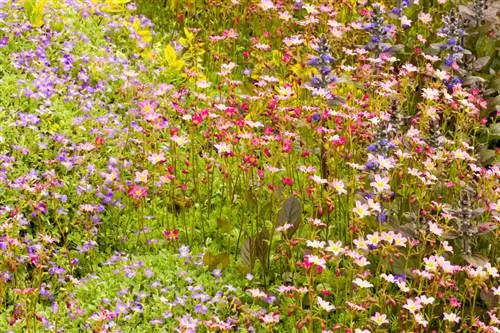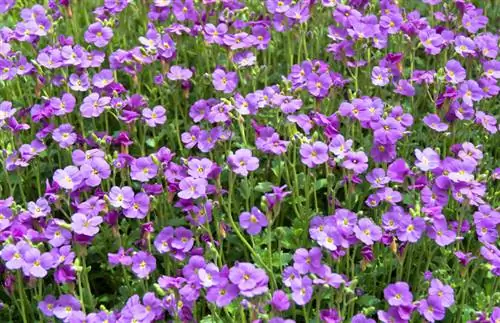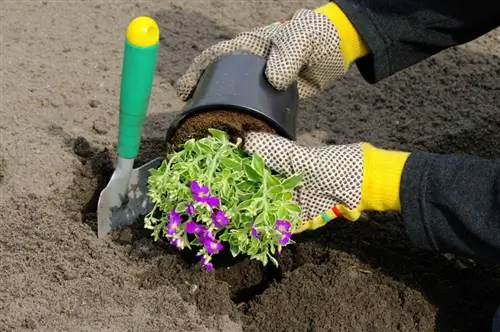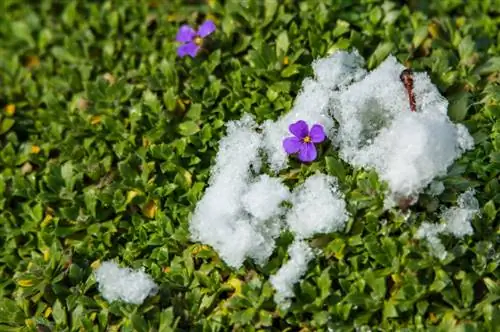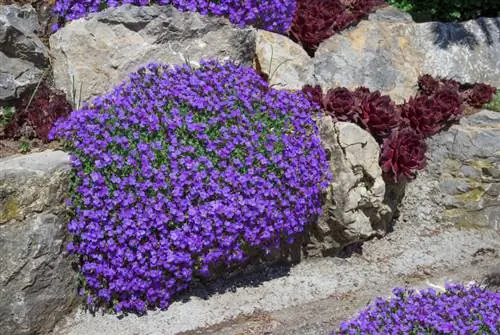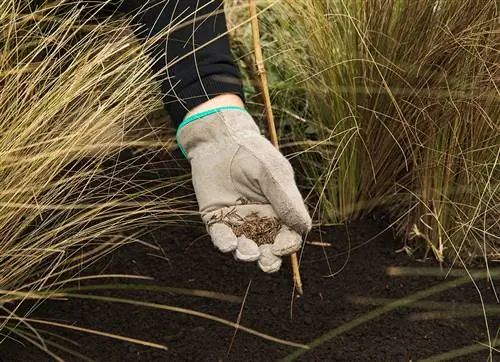- Author admin leonars@hobbygardeners.com.
- Public 2023-12-16 16:46.
- Last modified 2025-06-01 06:02.
There are three known methods for propagating the blue cushion. Sowing is the simplest, safest and most proven method. How does it work in detail?
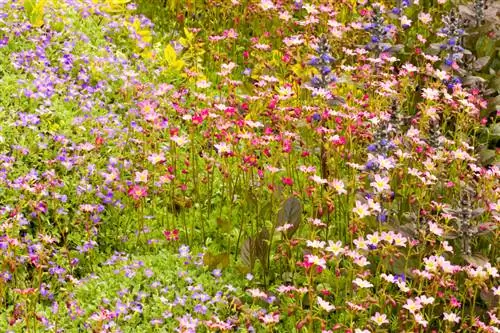
How to propagate blue cushions by sowing?
Blue cushions can be propagated by direct sowing from May or pre-cultivation from April. The seeds are distributed on a nutrient-poor, lime-rich substrate and lightly incorporated. Keep the seeds moist and allow them to germinate at 20-25°C within 1-4 weeks.
Targeted intervention - no coercion thanks to self-seeding
The blue cushion loves to multiply through self-sowing if you let it. Are you one of those gardeners who place a lot of trust in nature and prefer to watch the propagation rather than intervene specifically? Then wait until the blue cushion has seeded itself.
What is required? After the flowering period, you must not cut off the withered flowers. Alternatively, you can cut away the majority of the old inflorescences and leave some so that they can develop into capsule fruits. The capsule fruits burst open when ripe and release the seeds they contain.
Direct sowing from May
The seeds should not be sown directly outdoors before May. They can be sown not only in beds, but also in cracks in walls, between paving joints, in pots and balcony boxes.
Distribute the seeds of the blue cushion widely. They should be lightly worked into the soil (ideally a lime-rich substrate). If they come into cracks in the wall, some earth is added over them. Keep the seeds moist in the following weeks so that they germinate quickly!
Pre-culture is also possible: From April
In addition to direct sowing, it is possible to grow the seeds at home or in the greenhouse in a pot or a seed tray. The whole thing can take place from April. If you sow the seeds by July at the latest, you can expect flowers that same year.
How to do it:
- Put nutrient-poor seed soil (€6.00 on Amazon) in the cultivation container
- Distribute seeds, press lightly or cover very thinly with soil (light germinator)
- Moisten the substrate with a hand sprayer and keep it moist
- place in a warm place to germinate
- ideal germination temperature: 20 °C to 25 °C
- Germination time: 1 to 4 weeks depending on temperature
If the plants are around 4 weeks old, they can be pricked out. They are not planted out until May at the earliest. The location chosen should be sunny and warm and have a nutrient-rich, permeable and calcareous substrate.
Tip
Since the young plants are still quite sensitive, they should be protected in the first winter with brushwood or fleece, for example.

